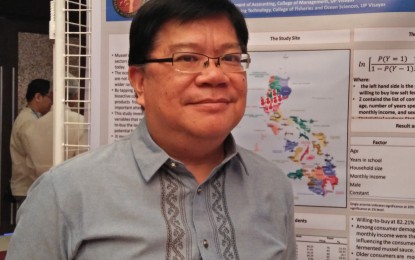By Perla Lena/PNA

ILOILO CITY — The Department of Science and Technology (DOST) is excited over its big-ticket project in Aklan, a marine transportation vessel, similar to that of roll-on, roll-off (RoRo) ferry.
Engr. Rowen Gelonga, DOST 6 (Western Visayas) regional director, in an interview Tuesday, said the department is investing around PHP40 million for the project hosted by the Aklan State University (ASU) in New Washington, Aklan.
“We are developing our very own marine transport in New Washington, Aklan. It will take us around two years to complete the project,” he said.
The project is locally designed and will try to incorporate the use of ocean waves as an auxiliary source of energy, he added.
“So, it’s not only designing safe and reliable marine transport vessel but we will also be involving the renewable energy research and development,” he said.
In a previous interview, Gelonga said that they are working out the facility hosted by the ASU, which will eventually become the center for marine and transport research and development (R&D).
The regional director said one of the priorities of the DOST aside from helping micro, small and medium enterprise (MSMEs) “is really to strengthen our research and development capability in Western Visayas”.
“The reason why we are doing this is that we would like to ensure that our MSMEs in the long run will have available innovations for them to eventually become competitive in the market,” he said.
Two weeks ago, DOST also signed an agreement with various partners for the establishment of the PHP41.57-million Regional Yarn Production and Innovation Center (RYPIC) in Miagao, Iloilo aiming to revive the region’s textile industry. It is to be hosted by the Iloilo Science and Technology University (ISAT-U).
DOST is also partnering with other state universities and colleges for other research projects.
In Antique province, the department has partnered with the University of Antique (UA) for grains research, especially in processing these into nutritious products.
In Guimaras, a food innovation center also develops products using mango, calamansi and other tropical fruits.
A fisheries-based food processing center is now available in Capiz while a metals and engineering center is being worked out in Negros Occidental.
DOST also supported the University of the Philippines in the Visayas (UPV) for the establishment of the Mollusk Research and Development Center.
The University of San Agustin (USA) also hosts the research center, headed by two “Balik Scientists”, focusing on drug discovery based on marine sediments.
“We are optimistic that in the next years we will be able to develop not only antibiotics but even anti-cancer drugs if their R and D activities will become successful,” Gelonga said.
ISAT-U aside from hosting the RYPIC is also doing well in their research on natural products, such as seaweeds.
“The long-term objective is really to ensure that our local industries will have the necessary technology that they need,” he said.
